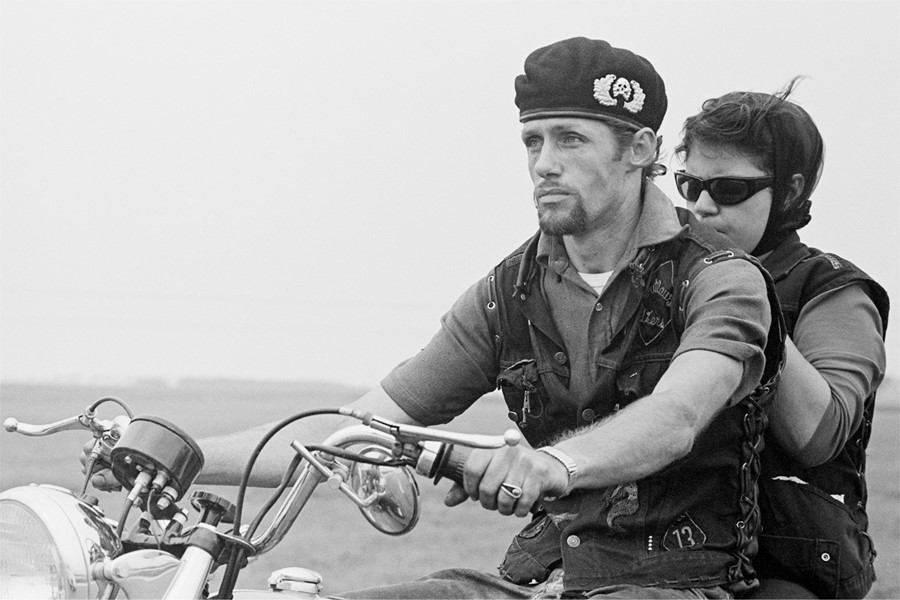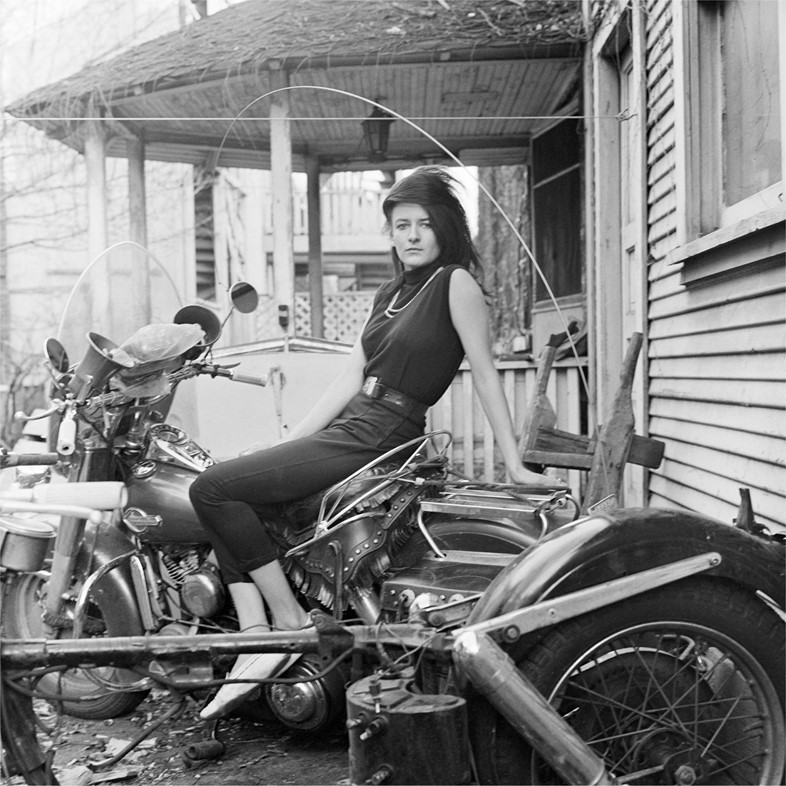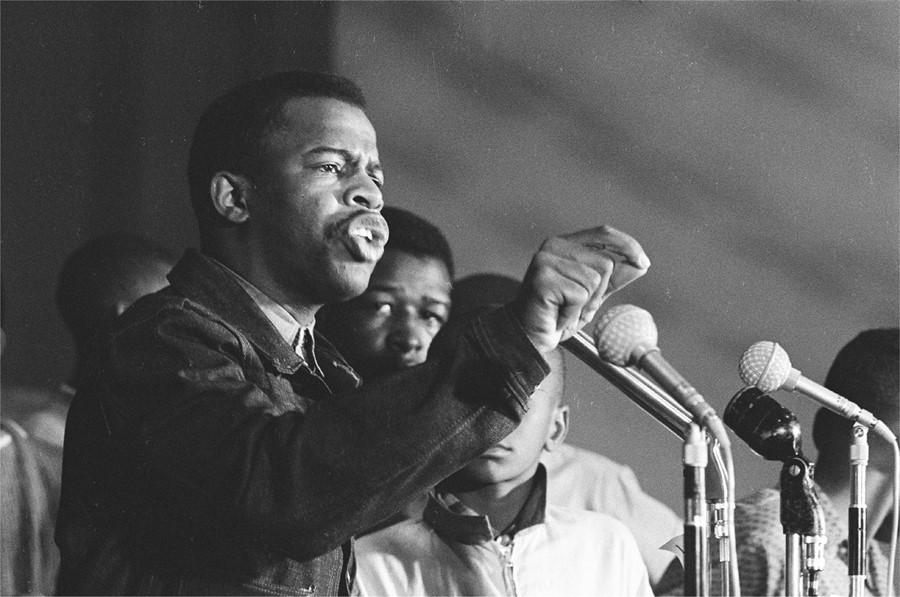
From Midwestern bikeriders to Texan prison inmates, photographer Danny Lyon turned his “camera into a sword for justice” – alongside a new Hollywood feature film starring Another Man cover star Mike Faist, Lyon has released a memoir telling his story
Few artists are willing to risk it all, except those who know no other way to exist. Photographer and filmmaker Danny Lyon inherited the spirit of rebellion and resistance from his mother, who regaled him with heroic tales of her brothers’ fearless crusade against the Tsar in the Russian and Bolshevik Revolutions of the early 20th century. As a young boy growing up in Queens, New York, Lyon would lie in bed at night and dream of seeing the world – never knowing his destiny was inextricably bound to history, art, and film.
Now 82, Lyon charts his extraordinary journey in the new book, This is My Life I’m Talking About (Damiani), a picaresque memoir that reveals his natural gifts for storytelling. Like his photographs, Lyon’s prose is electric, poetic, and filled with explosive details, bringing readers into the middle of the action before roaring off to the next episode. The stories move with the same intense pace with which he worked, crisscrossing the country on his red Triumph motorcycle during the 1960s.
Coming of age among a new contingent of radicals, activists, journalists, and storytellers at the vanguard of the counterculture, Lyon embraced the spirit of New Journalism, which eschewed the shopworn myth of “objectivity” in favour of immersion and subjectivity. Like Truman Capote, Joan Didion, Hunter S Thompson, and Tom Wolfe, Lyon was no mere observer: he was a participant, ally, and advocate for the disenfranchised, marginalised, and oppressed. But it wasn’t until the 1968 publication of Lyon’s debut monograph The Bikeriders that photography began to receive the same recognition as literature.
The Bikeriders chronicled the Chicago Outlaws Motorcycle Club between 1963 and 1987, a Hells Angels-style biker gang that Lyon joined in 1966. In his hands the photography book took on diarist qualities, the hand of the artist making itself felt as would a poet, painter, or composer. His intimate, searing, and tender images set the benchmark that would inspire a generation of photographers like Nan Goldin, Larry Clark, and Susan Meiselas to tell the story from the inside looking out.
This month, The Bikeriders returns as a Hollywood feature film starring Austin Butler, Tom Hardy, Jodie Comer, and Mike Faist as Lyon, who appears on the cover of Another Man. Directed by Jeff Nichols, the movie takes real life characters from the book and recasts them in a fictionalised tale of violence and love. Lyon’s iconic photographs are recreated throughout the film, with the originals shown at the end.

By the time Lyon published The Bikeriders at the age of 26, he was already a veteran in the field, getting his start on the frontlines of the Civil Rights Movement alongside Dr Martin Luther King Jr and John Lewis as the first official photographer for the Student Nonviolent Coordinating Committee (SNCC) in 1962 and 63. Lyon, then a student at the University of Chicago, recognised the power photography could wield in the movement at a time when it had not yet reached mainstream consciousness. “This was propaganda for a righteous cause. I would turn my camera into a sword for justice,” Lyon writes in This is My Life I’m Talking About.
Lyon brought this ethos to his groundbreaking 1971 book, Conversations With the Dead. With the support – and later interference – of the Texas Corrections Department, Lyon set forth on a 14-month journey that would take him inside six Texas prisons in the late 1960s to explore the dark heart of America’s burgeoning prison industrial complex. He not only documented the inmates, he diligently preserved their mug shots, prison documents, newspaper clippings, and letters to create a multidimensional look at those who fell victim to the system.
Conversations With the Dead became a primer for photojournalists and documentarians seeking to collaborate with institutions while simultaneously using photography to examine, amplify, and take action on the issues raised. Lyon’s layered portrait of incarceration later inspired Mary Ellen Mark, who spent 38 days inside Oregon State Hospital interviewing and photographing women inmates for the groundbreaking 1978 series Ward 81.

Lyon brings this same energy to This is My Life I’m Talking About, weaving personal correspondence throughout to bring the voices of the people he photographed to life. The book also features a wealth of never-before-seen photographs from his archive and personal effects that come together as in a powerful chronicle of the twentieth century counterculture.
This is My Life I’m Talking About by Danny Lyon is published by Damiani, and is out now.

